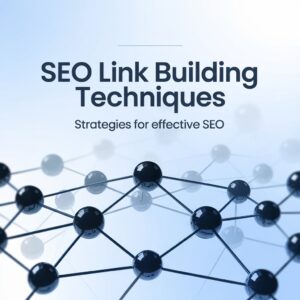Search engine optimization (SEO) is critical for online visibility. Without it, your website could get lost in the crowd. Here, we’ll explore five practical SEO strategies that can improve your rankings and help your audience find you faster.
Understand and Use Relevant Keywords
What Are Keywords?
Keywords are the words or phrases people type into search engines when looking for information. They connect your content to your audience’s queries. Using the right keywords ensures your website appears in search results when users need your products or services.
How to Research the Right Keywords
Researching keywords involves identifying terms relevant to your business. Use tools like Google Keyword Planner or SEMrush to find keywords with high search volume and low competition. Focus on long-tail keywords to capture more specific traffic. For example, instead of “SEO tips,” use “SEO tips for small business owners.”
Optimize On-Page Elements
Importance of Title Tags and Meta Descriptions
Title tags and meta descriptions are the first things users see on search results. A compelling title tag under 70 characters and a meta description within 160 characters can improve click-through rates. Include primary keywords naturally in both.
Structuring Content for Readability
Well-structured content improves user experience and SEO. Break text into short paragraphs, use bullet points, and include headers with keywords. Clear, scannable content keeps readers engaged and encourages longer site visits.
Build High-Quality Backlinks
What Makes a Backlink Valuable?
A valuable backlink comes from a reputable, high-authority website. Links from trusted sources signal search engines that your content is reliable and worth ranking higher.
Strategies for Earning Backlinks
Create high-quality, shareable content like infographics or guides. Reach out to industry influencers or write guest posts for authoritative blogs. These efforts build your backlink profile over time.
Prioritize Mobile-Friendly Design
Why Mobile Optimization Matters
More than half of web traffic comes from mobile devices. If your website isn’t mobile-friendly, you risk losing visitors. Google also prioritizes mobile-first indexing, meaning your mobile site impacts your rankings.
Tools to Test Mobile-Friendliness
Use tools like Google’s Mobile-Friendly Test to identify areas for improvement. Check your site’s responsiveness, page load times, and ease of navigation on smaller screens.
Focus on Technical SEO
Improving Site Speed
Page speed is a critical ranking factor. Compress images, use caching, and enable a content delivery network (CDN) to improve loading times. Faster sites offer better user experiences.
Fixing Crawl Errors and Broken Links
Regularly audit your site using tools like Screaming Frog or Google Search Console. Fix broken links and resolve crawl errors to ensure search engines can index your site efficiently.
By applying these five strategies, you’ll improve your website’s SEO and connect with your target audience effectively. Start implementing these today for long-term success.





